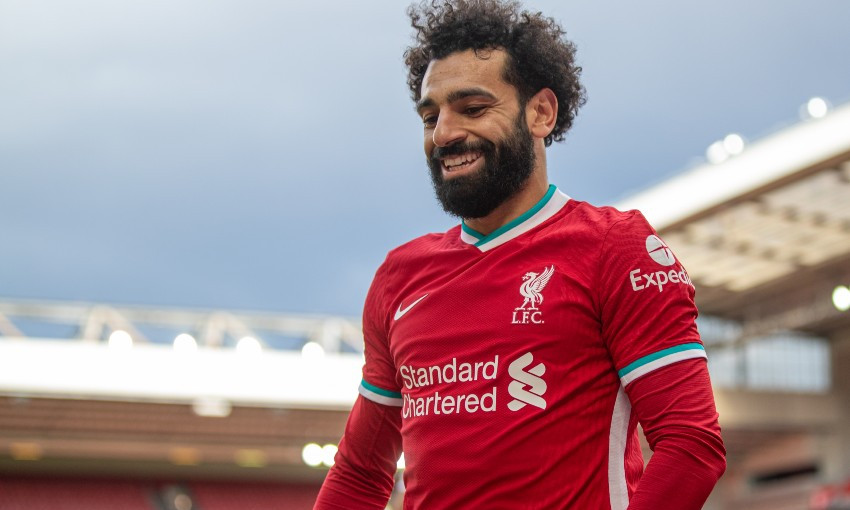Mohamed Salah | The untold story of how he became a Liverpool great
Peter Krawietz describes coaching him as a ‘pleasure’ and a ‘joy’.
For Pepijn Lijnders, he is a ‘true example’ who has ascended to legendary status.
Andreas Kornmayer, meanwhile, considers it an honour to work with an athlete he labels a ‘great guy and a friend’, as well as an ultra-motivated role model.
We are, of course, referring here to Mohamed Salah, who is set to make his 200th appearance for the Reds against Manchester United on Thursday.
Ahead of this landmark, Liverpoolfc.com spoke with three members of Jürgen Klopp’s backroom staff to learn more about the Egyptian and how he operates behind the scenes at the AXA Training Centre.
Evidently, Salah is one of world football’s premier stars; a stellar talent who has already affirmed his place among the finest and most productive players in his club’s history.
“Two hundred games, so many goals, so many incredible moments,” as Lijnders puts it.
But how has he got there? What makes him extraordinary? And why does he so rarely miss games or training sessions?
These were among the questions put to Krawietz and Lijnders – Klopp’s assistant managers – and Kornmayer, the club’s head of fitness and conditioning.
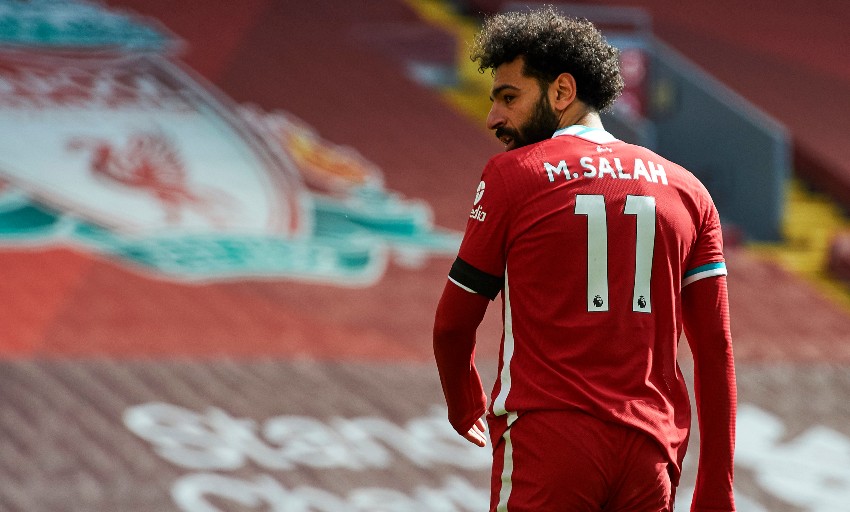
“His car is always on the car park – sometimes I think he does it on purpose!”
Salah is, by common consent, a consummate professional who approaches every aspect of his job with an unwavering focus and desire for self-improvement.
Without fail, he does extra work in the gym every day – “If you tell him to be there half an hour before training, he will be there one hour before,” reports Kornmayer – and his commitment to additional work beyond team sessions, such as nutrition, recovery, mobility and strength, is total.
“He invests a lot of time in his preparations. You saw him grow as a professional over the last years, he treats his body very well,” Lijnders notes.
“His car is always on the car park – sometimes I think he does it on purpose!”
Krawietz elaborates: “It’s a pleasure to coach him. It’s a joy, to be honest, because Mo is an absolute professional player. He is desperate to win, he is desperate to score goals and he is ready to live for his profession.
“In the end, everything he is doing is to try to be as often as possible in the best shape he can be, to be prepared for the next game, for the next challenge.
“He really keeps going and of course this is what you want as a coach, and what is absolutely necessary as well to be a top player, to be a world-class player, which he is.”
Since his arrival from AS Roma in the summer of 2017, Salah has missed just seven of Liverpool’s 148 Premier League fixtures.
He is seldom absent from training, either, with Kornmayer ascribing his remarkable attendance record to a combination of professionalism and natural athleticism.
“He is available and I think that is the best thing you can do as a player,” says the former Bayern Munich fitness coach.
“He wants to be as fit as possible every day. He wants to be available for us, to get the next team objectives and to get goals and get the Golden Boot, and all these things.
“He is very motivated on a high level and he wants to achieve as much success as possible. It is pretty easy to work with him and really, he is not only a highly professional player you like to work with, he is also a great guy and a friend. It’s just an honour to work with him.”
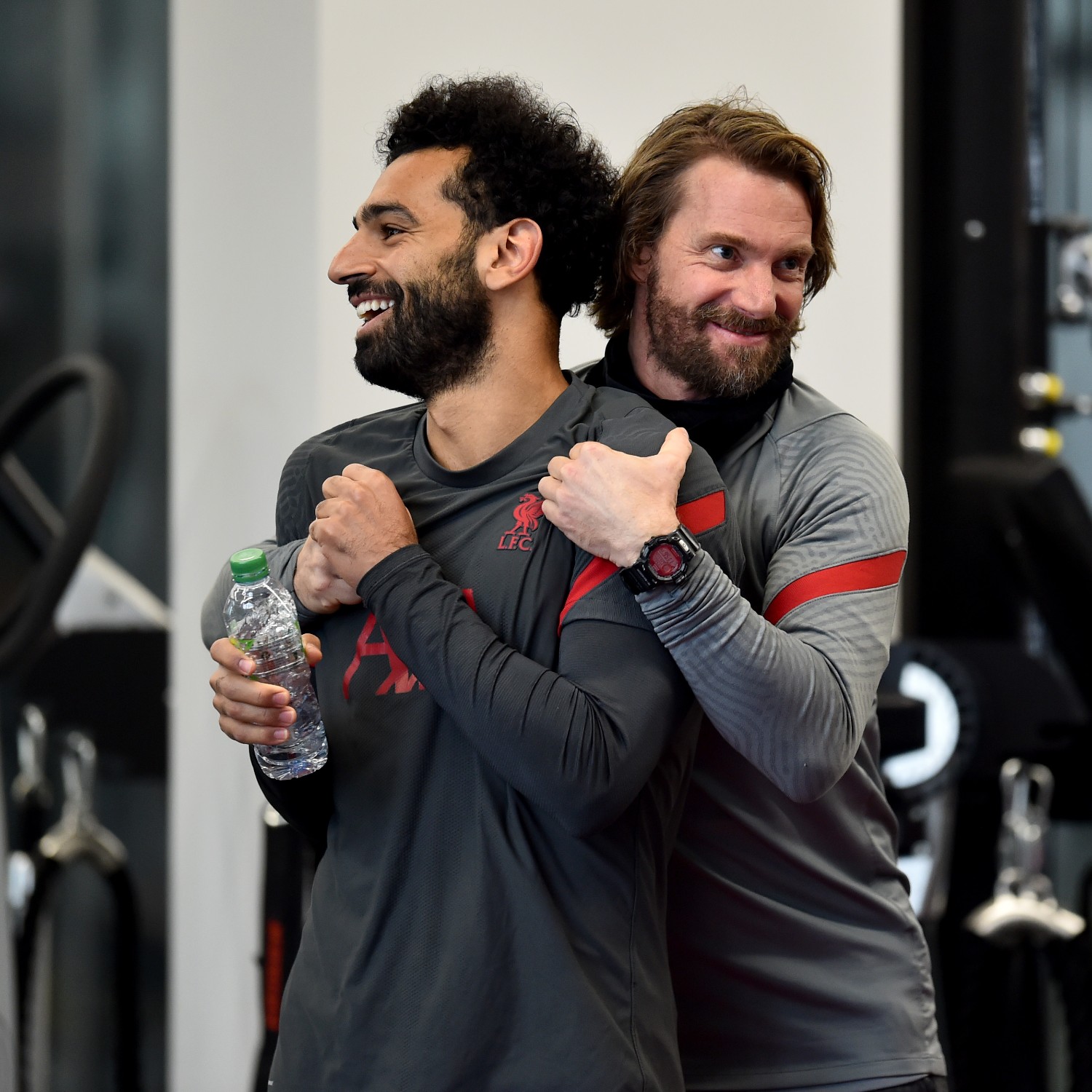
Indeed, is Salah’s robustness one of his standout attributes?
“This is part of the attitude you need: never feel tired, always face the challenge for the next game – and he wants to play, desperately, every game he can,” Krawietz replies.
“Obviously he understood that you have to prepare yourself constantly and this is of course one of his biggest qualities; that he is able to do that, that his body is able to do that, especially if you think about that one of his biggest skills is his speed.
“A lot of players who are quick are getting tired quicker or earlier in the game, or they can’t make the same amount of high-intensity runs. Not getting injured if you are a player like that, and having the endurance at the same time, this is an outstanding talent Mo has got.”
Like the rest of his teammates – “Nobody trains badly and that is one of our biggest strengths… our ambitions are high, but our attitude in training is even higher,” in Lijnders’ words – Salah demands daily excellence from himself.
“Mo’s level in training is always as good as in matches,” Krawietz states.
“This consistency in the last three or four years – developing together with the team, to prepare yourself constantly for these amount of challenges, to perform at the high level always as good as possible, to stay healthy, to avoid injuries – we coaches know this is a 24/7 job to do!
“There is a lot of responsibility for the players themselves to make sure you do really everything you can do in order to prepare yourself, to prepare for the games and training.
“So, Mo wants to be successful, he wants to be an important part of this team and this squad. This is of course something you need, something we need, something the team needs and in that part he is really a role model, especially for the young players.
“If they see him, how hard he is working in the gym, what he is doing around – it is really exceptional, what he is doing.”
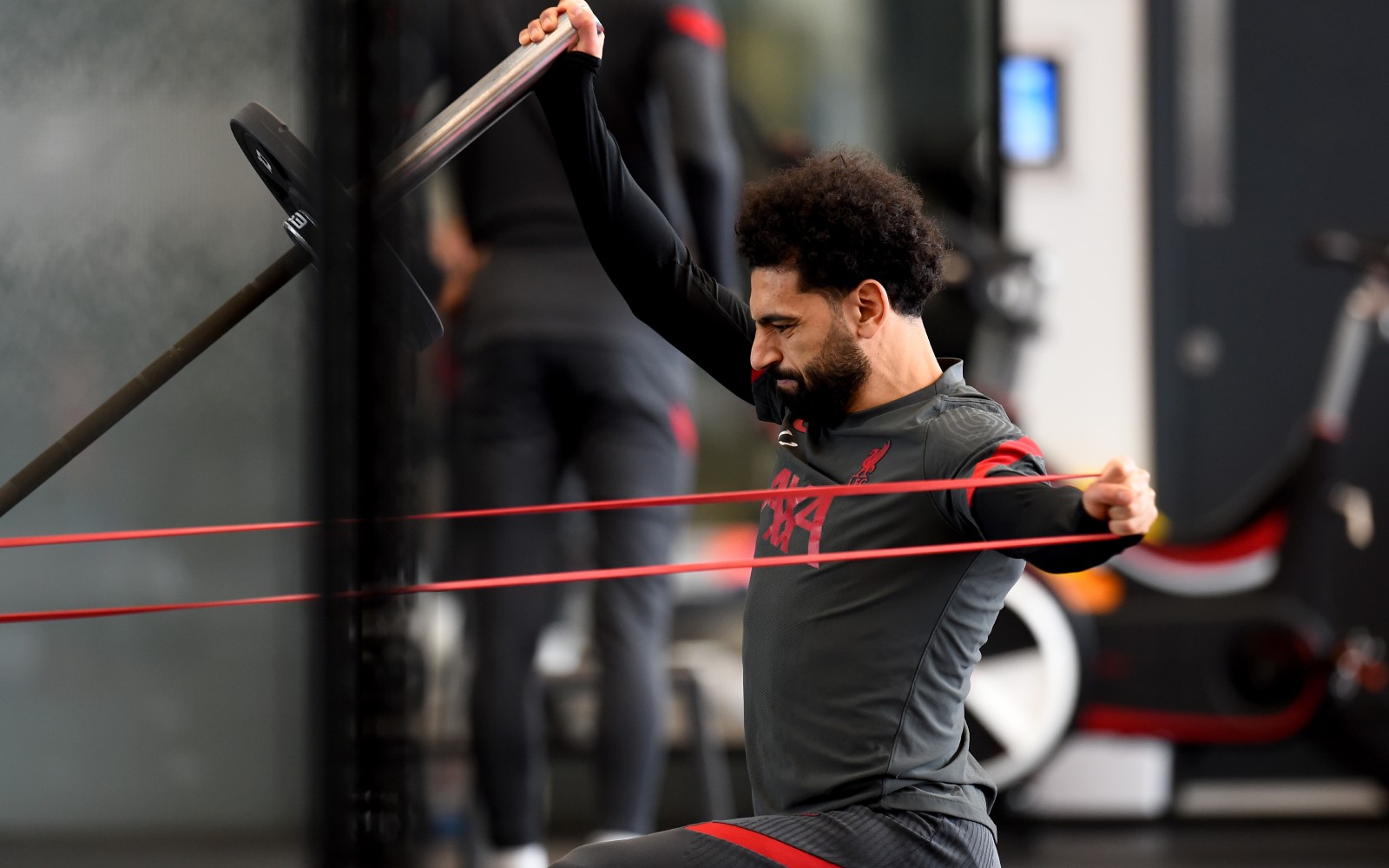
“He is always open, always receptive.”
Salah’s thirst to get better, both on an individual and collective basis, and brightness mean he is amenable to tactical instruction and able to absorb information quickly.
“He has been training with us for a long period of time and it is important for us that he understands our way of playing and at same time stays spontaneous and lively,” Lijnders explains.
“He is always open, always receptive. He has this true peace of mind that really helps, and above that he is always ready to help others.”
Krawietz echoes his colleague’s thoughts: “Mo is a really, really smart and intelligent person so he understood, and is understanding, pretty quickly what you want.
“But in the end from our coaching perspective it’s about convincing the player – and he is absolutely convinced about our way and this is what we feel, this is what we see.”
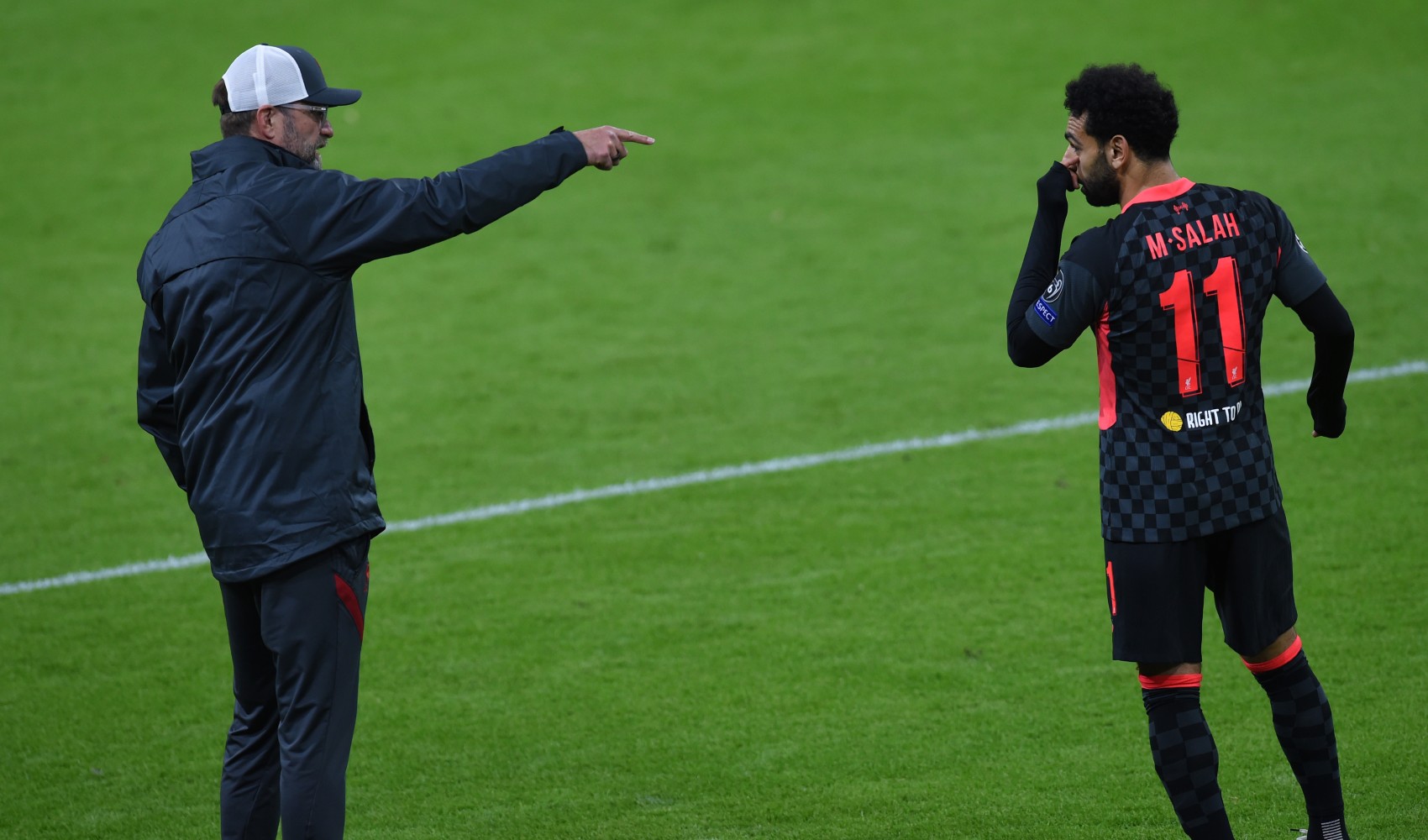
Salah has evolved as a footballer and an athlete during his time with Liverpool, with Krawietz going on to provide an in-depth analysis of a particular facet of his game that has grown.
“He does not only use his skills for offensive actions,” the assistant manager details. “Of course, naturally he wants to score goals! But he is convinced that our way of defending prepares our offensive actions.
“In our way of playing football it is necessary that absolutely everybody is defending as well, that everybody is fulfilling his role in the defensive part of our football. This is something that we need: this intensity to play against the ball, to work defensively, to win the ball back and bring ourselves in situations we can use then for quick counter-attacks.
“Nobody can take himself out of this, and this is of course as well what Mo is doing: he is working for the team defensively and he developed really over the years as a brilliant pressing player. He understands that winning the ball back as early as possible is important for our way of creating goalscoring opportunities.
“There are other players in world football who don’t defend for their team really passionately, but Mo is different.
“He is working for his team, he wants to be successful, he understood his role and that is of course the most important point: that he is doing both. He is scoring for us and connecting with the other offensive players, and also doing the defending part.
“Everybody has to find his own way of making his career. Before Mo came to Liverpool, in Rome he played two seasons I believe already outstandingly well, and he came to Liverpool and kept going to develop further.
“Of course, together with the team, he became a really big player in world football. The amount of goals he scored, to deal then with the pressure of looking to keep developing and being an important player for his team not only in one season, but doing this over and over – this is the big, big challenge.
“It always can happen that a striker or an offensive player has an outstanding season and he scores 30 or 35 or 40 goals, but doing this year by year and being at the same time successful with your team, winning trophies [and] reaching targets and objectives – this is what makes an outstanding player and this is what Mo, of course, did in the last four years.”
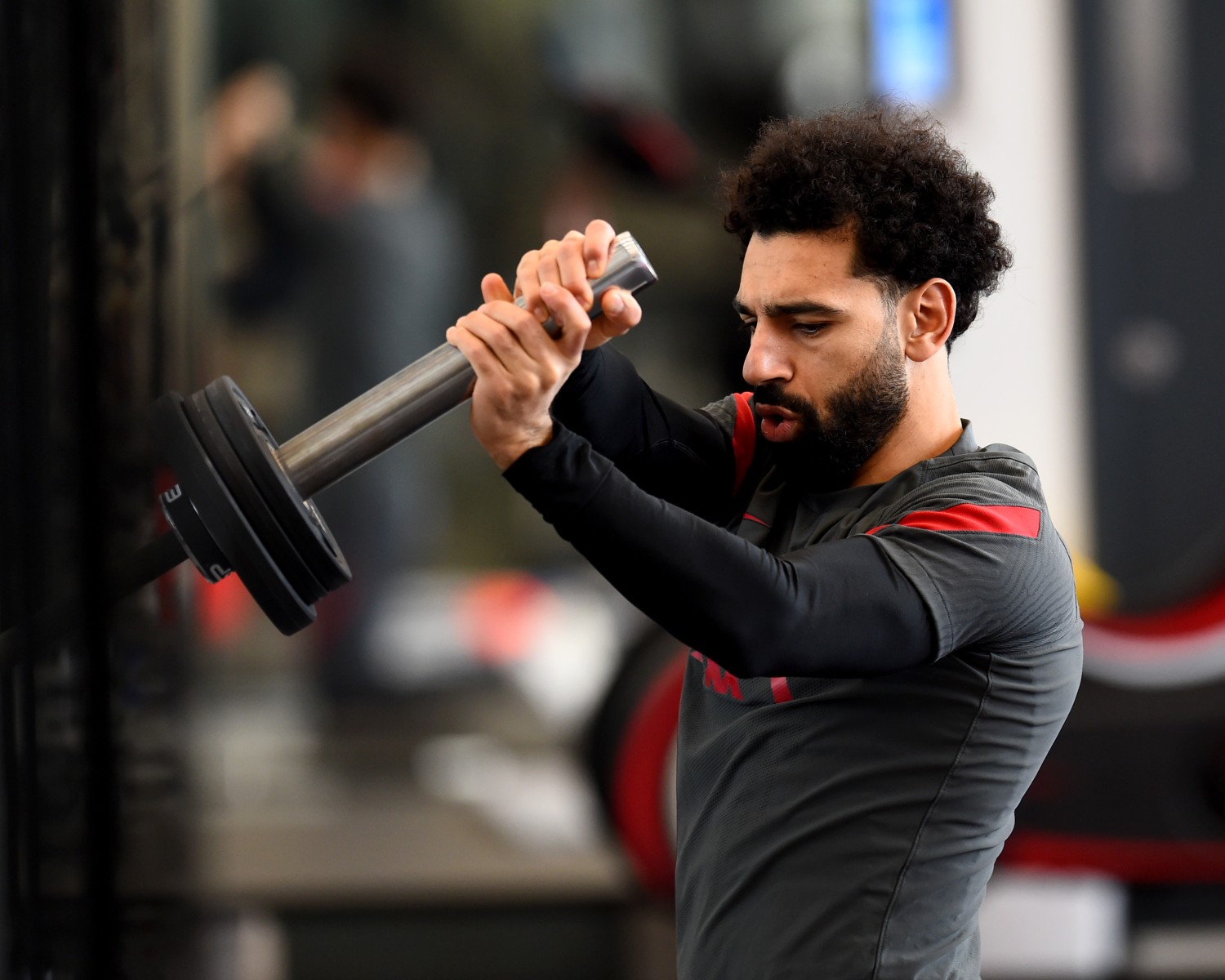
Having always boasted explosive speed and acceleration, Salah has added another dimension to his physical skillset since joining Liverpool: core strength.
Kornmayer explains: “You need to be a little bit careful because if you say ‘stronger’ you maybe think of Arnold Schwarzenegger! But it’s not about muscle mass, it’s about core, it’s about robustness.
“I think this is a natural process that all the new players who come to us need to go through, to be honest, because the Premier League is like that.
“I think the Swiss league is different and I think the Italian league is again different. Maybe it was enough to be fast when Mo was in Basel, for example.
“But in the Premier League you have players who are also fast and really robust defenders, so that means he needs to be stronger and this was a big point we worked on from day one. Mo knows his strengths, yes, but he knows his weaknesses too.”
“In the most influential games he was everywhere to be found. He is so much more than a ‘striker’ for us.”
Salah’s first 199 appearances for Liverpool yielded a staggering total of 123 goals and 42 assists, a litany of individual records and accolades, and four major trophies, including the Champions League and Premier League.
He is, by any measure, an elite performer; a footballer to be classified among the game’s best.
What are the skills that make him so?
Watch: Salah's 20 Premier League goals so far in 2020-21
“He is a gifted finisher; his imagination and intuition in these moments are just brilliant,” Lijnders states.
“The way he can keep the ball in the hardest situations and find a way to come out and score, that’s what identifies him. Many players have this, but not many have this consistently: then you are part of the world’s best. Two hundred games, so many goals, so many incredible moments.
“In the most influential games he was everywhere to be found. He is so much more than a ‘striker’ for us. Our game stimulates this development, forces this way, because everyone is responsible for everything.
“He becomes more and more a ‘playmaker’ as well, that’s what I like. We need this unpredictability from him, from everywhere. But the most valuable characteristic of our best players is that they know that the team is what makes us all reach these highs.”
Along with Salah and the other high-calibre forwards he has worked with at Liverpool, Krawietz coached the likes of Robert Lewandowski and Pierre-Emerick Aubameyang during his time with Borussia Dortmund.
And he reveals, in illuminating depth, what players of this rarefied standard share: “For sure their attitude to want to be successful – this will, this desire – and also to do everything for it.
“This means really, really being absolutely professional and thinking constantly about what is best for me and my body to recover and be ready for the next challenge. To be really ready, mentally as well, for the next game and keep going, keep going, keep going.
“On a bad day, these players are ready to give everything and this is the most important part: to connect with their teammates, being a guy who is with the team and working for the team. This is what all these players understood very well: it’s about my teammates, I need to support them and then I will get their support.
“They understand very, very good that even as a goalscorer they will nearly always need an assistant! Ten other players who bring me in the situation to score, who are passing me the ball there, who are preparing the situations to score.
“This is, for sure, one of the shared characteristics of these players – that they understand this and they behave like that.
“Strikers always, of course, think about themselves and the best situations for themselves as well. They have to, otherwise they couldn’t be as successful.
“But for us, as the coaches, this connection with the other wonderful offensive players we have at Liverpool: this is the decisive part, that they are well connected, that they play together, that they defend together, that they work for each other, that they make unselfish runs or these constant offers and work as a team together. There is no other way in football to be successful.
“Even as an individual you have to understand that and I am obviously a very, very lucky guy to work together with these fantastic sportsmen and these unbelievable players. If you look back and compare, this is for sure the one thing they have together: they all understand all of these points.”
“This club has the capability to turn good players into legends and he is one more of them.”
For all of Salah’s feats at Liverpool, for all the success and silverware, Lijnders places greater importance on an intangible quality the Egyptian has brought to the club.
“For me, bigger than the achievement of all these decisive goals so far is his everyday presence in our club: his character is special, a true example,” the Dutchman declares.
“This is what makes Mo such a great player, an example. There is no bigger compliment in life, I would say. The best ones stay humble, the best ones are true examples. I hope this stays and, to be honest, I’m convinced this will stay.”
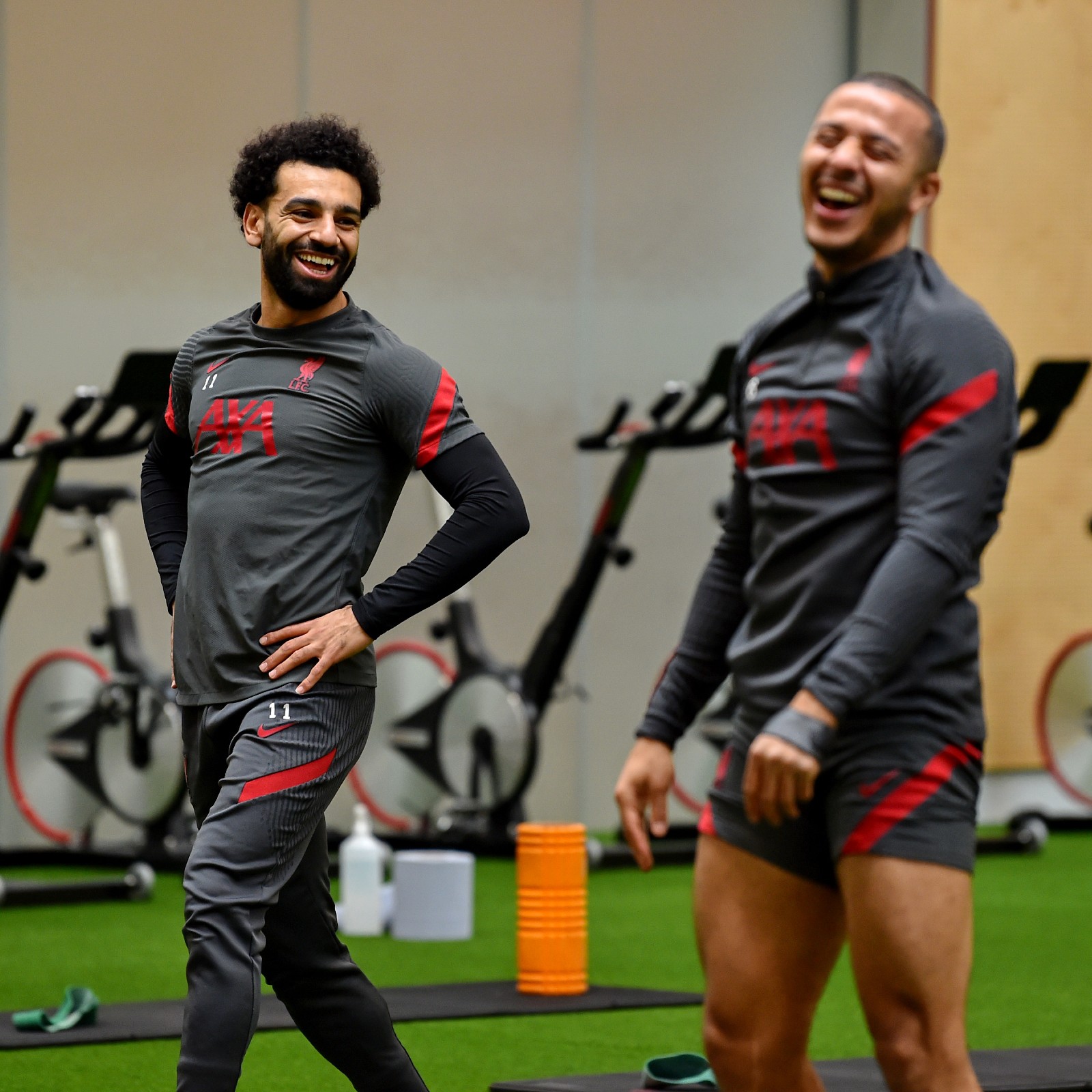
So, how would Lijnders sum up the experience of coaching Salah?
“Mo is a big player, a big personality, and big players are easy to guide as long as you are honest and fair,” he closes.
“He is someone who loves the game and understands the necessity of training with maximum concentration – that’s so important – but a smile and a joke are always around the corner between him and the others.
“Mo is a proper team player. We are just really happy he is with us.
“This club has the capability to turn good players into legends and he is one more of them. He is part of an iconic team and will be forever related as one of the important faces of this Liverpool FC generation.”


